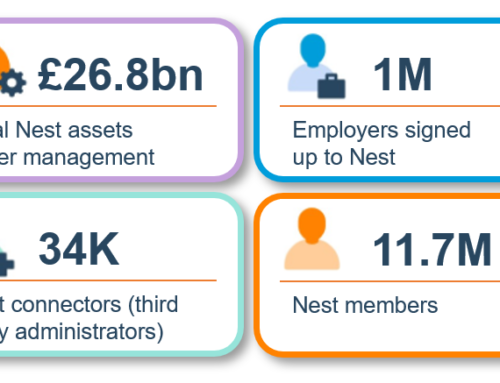The ability to design communications that can accommodate all employees is no easy task. One of the biggest challenges that needs to be overcome is sending out the right communication at the right time. However, knowing what else might be going on in an individual’s life or what type of provisions they have made for retirement is almost impossible, outside of an advice or guidance process.
The golden rule in these circumstances is to create messages with a specific goal in mind. Support this by some generic research to help identify the most appropriate times to delivery these messages and you are well on the path to supporting employees approaching retirement.
The good news is employees approaching retirement are likely to engage more with messages about pensions, particularly as access to money is always a good motivator for getting someone’s attention. Although this doesn’t mean you should wait until your employees are close to retirement before discussing these plans and there is strong evidence that engaging as early as possible increases the potential for individuals to understand and trust the information you provide.
Design
The topic of retirement is confusing, keep things simple, reassuring (without coming across as patronising) with a clear goal or outcome so that the recipient is sure of what they can or need to do. Making the communications ‘easy to digest’ and consistent (keeping the tone of voice, for example) by creating a series can also be a good way of educating employees on such a complex area of pensions.
Designing a communication plan that helps an employee feel a sense of ownership as soon as they make a contribution is a great start and communications that follow should link into a retirement goal if possible, creating a flow of conversation in the lead up to planning and eventually retiring.
Many individuals prefer to receive support face to face or at least verbally as this can help them alleviate any personal concerns. Whilst others may prefer to ‘self-educate’ by using online tools or educational material. By using a variety of media to deliver communications, the scope for personalising your message increases, which again not only offers comfort to those you are trying to support but is also shown to increase engagement levels.
Timing
For those far from retirement, communications can be more tailored, demonstrating the reasons for saving to including topical issues such as environmental investing for example. Stronger emphasis on ‘goal setting’ for retirement and planning can be reserved for those closer to retirement, although it’s also important to note that retirement isn’t a cliff edge and many closer to retirement might need further encouragement to save or support with plans.
Employers may not be aware of what else is going on outside of their employees lives but it’s worth considering what you do know, working within these limits is a great start in helping to identify the best times to communicate specific messages. There is a significant benefit in timing messages to coincide with bonus payments or pay rises for example, such communications around these times can help employees plan better for retirement and those saving.
Make time for your employees to understand their own position and provide links to wider support services where possible, involve them in the conversation this is particularly useful if dealing with employees with more specific needs, such as a language barrier or disability.
Specific needs don’t just stop at the obvious. Some of us are less confident than others about managing finances and it is not easy to identify this. Making time for individuals to select their own support requirements is essential for success as well as ensuring the support available is accessible. For example, organising a seminar with wheelchair access, or creating an online video with subtitles.
Technology and Research/data
Use all the technology and research available to truly understand the nature and demographics of your organisation from google analytics to marketing tools and even pension providers data. These can help you to identify any of the more specific issues employees may be facing, some of which can be tackled with communications whilst others may indicate a need for a more face to face or hand holding approach
In summary the best way to design inclusive communications that support employees approaching retirement is to keep it simple, accessible and acknowledge that every path to retirement is unique and timing of your message essential.
To help your employees who are age 50 and over work out their pension options as they come up to retirement, we’ve created a communication toolkit you can download and use.


